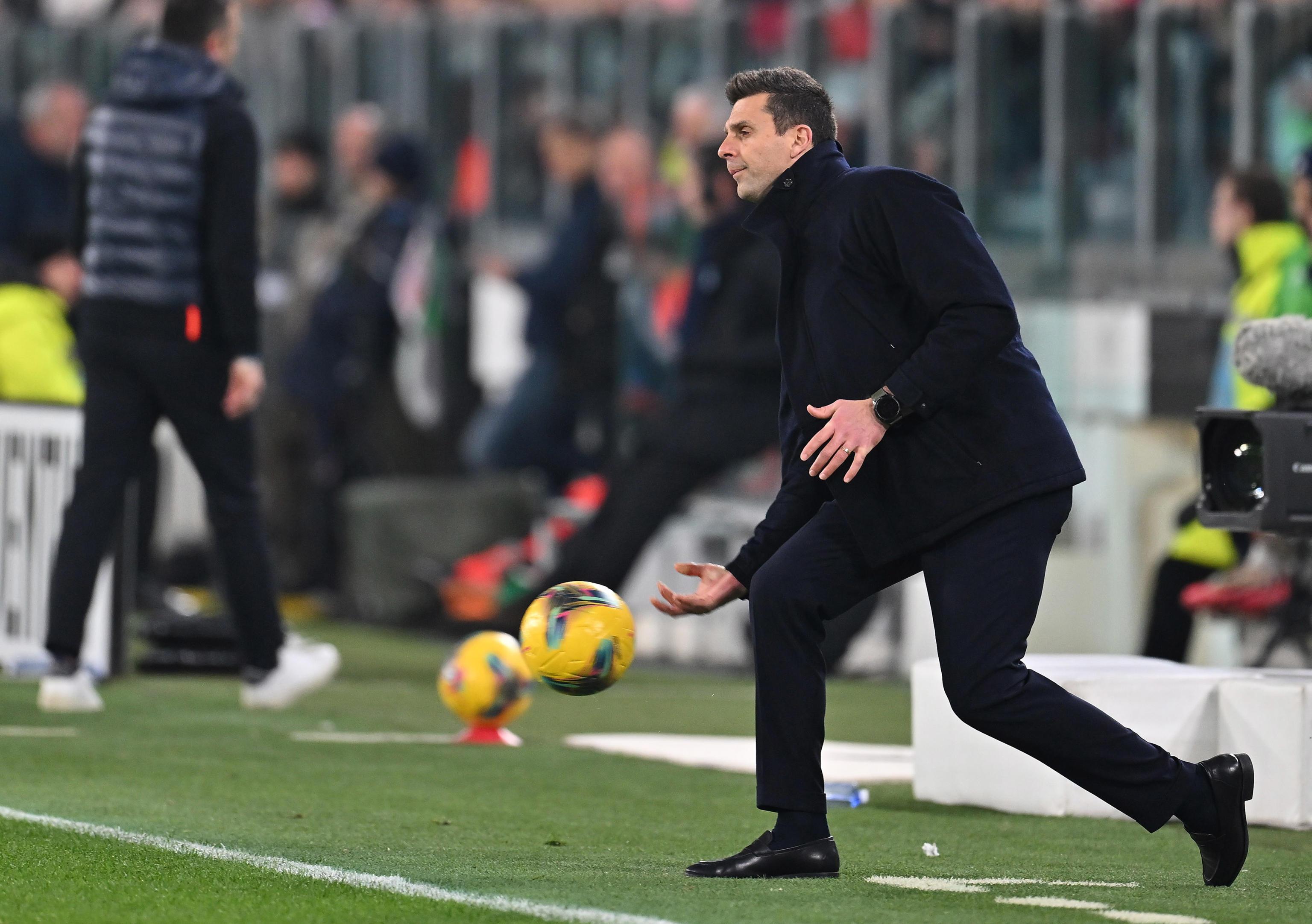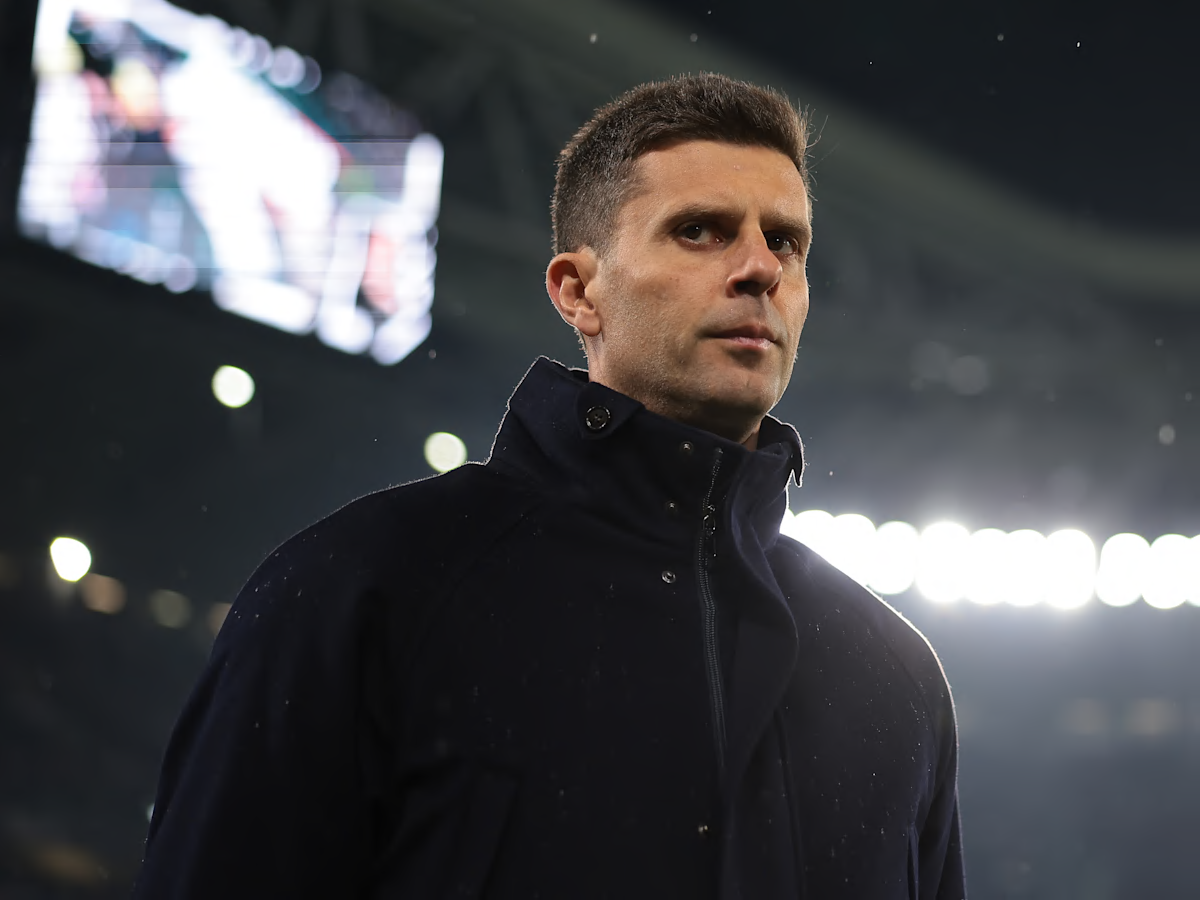
Juventus' Managerial Crisis: The Impact of Thiago Motta's Departure
In a shocking turn of events, Juventus has officially parted ways with head coach Thiago Motta just nine months into his tenure, following a string of humiliating defeats that left the club's supporters heartbroken and questioning the team's future direction. The final straw came after a dismal 3-0 defeat to Fiorentina, a result that compounded the club’s challenges this season and highlighted a critical lack of tactical identity. This managerial shake-up not only raises questions about the immediate future of the team but also about how Juventus, once a dominant force in Italian football, can reclaim its place among the elite.

Motta’s brief tenure was marked by instability and a lack of coherent strategy, which many analysts attributed to the club's struggles. Under his guidance, Juventus managed only a handful of wins in the league, and the team frequently appeared disorganized on the pitch. The absence of a clear tactical philosophy left players unsure of their roles, and the squad's evident talent was largely unutilized. This tactical confusion became painfully evident during the recent matches, particularly against Fiorentina, where the defense was exposed repeatedly, leading to a resounding defeat.
The Rise of Igor Tudor
The name on everyone’s lips following Motta’s dismissal is Igor Tudor, who is emerging as the frontrunner to take over as Juventus' next head coach. Tudor, a former player and assistant at the club, is known for his pragmatic approach to management. His experience in Serie A, especially with clubs like Hellas Verona, where he successfully implemented a compact defensive style and encouraged quick transitions, may provide the stability Juventus desperately needs.
In his previous role at Verona, Tudor transformed the team's fortunes, guiding them to a mid-table finish while employing an effective blend of defensive organization and attacking flair. This balance is crucial for Juventus, as they must navigate both domestic and European competitions. His familiarity with the club's culture and expectations could serve as a vital asset in potentially revitalizing the squad.
The Broader Implications
This managerial change raises significant questions about the future identity of Juventus as they seek to overcome their current challenges. The club's rich history of success has been overshadowed by recent struggles, and the next few weeks will be pivotal in determining whether they can turn their fortunes around. Fans and pundits alike are eager to see how Tudor's pragmatic style contrasts with Motta's more fluid, yet ultimately ineffective, approach.
The replacement of Motta also underscores the larger issues at play within Juventus. Despite boasting a squad filled with talent, the lack of direction and clear tactical vision has left many players underperforming. The likes of Dusan Vlahovic, Federico Chiesa, and Adrien Rabiot have shown flashes of brilliance but have struggled to find consistency amid the chaos. A new managerial approach could be critical in unlocking their potential and re-establishing Juventus as a competitive force in Serie A.
Tactical Adjustments Required
For Tudor to succeed, he will need to address several tactical deficiencies that have plagued the team. This includes solidifying their defensive structure, which has been leaky at best in recent outings, and instilling a greater sense of discipline and clarity of roles among the players. The transition to a more organized defensive setup will likely be his first priority, as he aims to shore up a backline that has conceded too many goals in critical matches.
Juventus' attacking play also requires rejuvenation. Under Motta, the team often struggled to create clear chances, relying heavily on isolated moments of brilliance from individual players rather than cohesive team play. Tudor's tactical acumen will be tested as he looks to develop a more fluid attacking strategy that maximizes the talents of his forwards while ensuring they remain defensively sound.
A Shift in Club Philosophy?
The crisis at Juventus also reflects a broader trend within the club. Historically, Juventus has prided itself on a strong defensive foundation complemented by a potent attack. However, the recent managerial changes and tactical experiments have hinted at a potential identity crisis. Fans are left wondering whether the club is still committed to a philosophy that prioritizes defensive solidity or if it is willing to adopt a more modern, expansive style of play.
As Tudor steps into the managerial role, he faces the immense challenge of re-establishing Juventus as a dominant force while addressing the tactical and philosophical shifts that have transpired in recent years. The club's ambitions extend beyond merely surviving in Serie A; they aim to compete for titles and restore their reputation both domestically and in European competitions.
Conclusion
The sacking of Thiago Motta signals a pivotal moment in Juventus' season and potentially the club's long-term strategy. As Igor Tudor prepares to take the helm, the focus will be on how quickly he can implement his vision and instill a sense of stability in a squad that has struggled to find its footing. The upcoming weeks will be crucial for the Bianconeri as they look to turn their fortunes around and reclaim their status as a powerhouse in Italian football.
With a wealth of talent at their disposal, Juventus has the potential to rebound from this crisis and forge a new identity under Tudor's guidance. However, the transition will require patience and a collective commitment to the tactical adjustments that will be necessary to thrive in the challenging landscape of Serie A.
For more insights and updates, follow Goal and Bleacher Report.
As the dust settles on this managerial upheaval, all eyes will remain firmly fixed on Juventus as they seek to navigate their way back to the summit of Italian football.